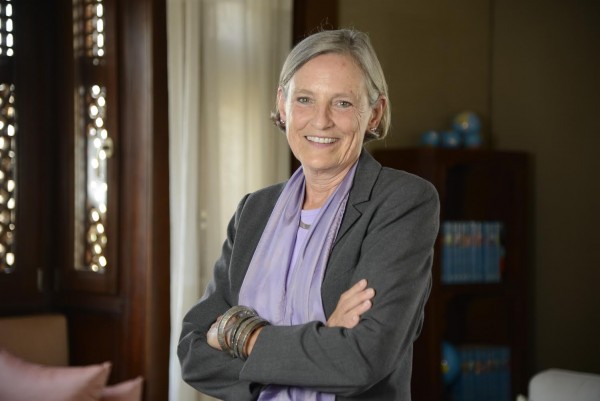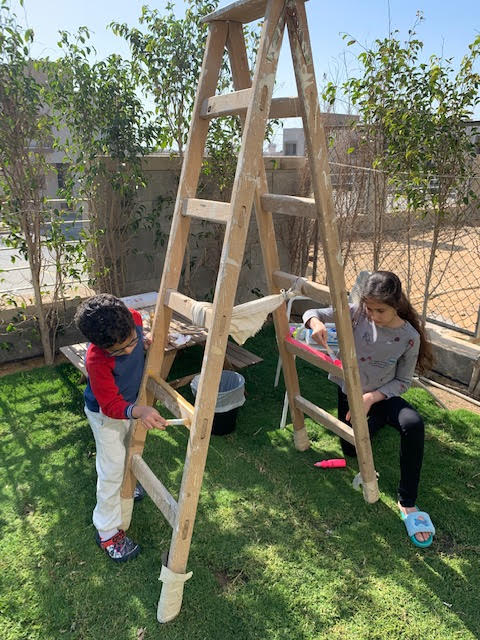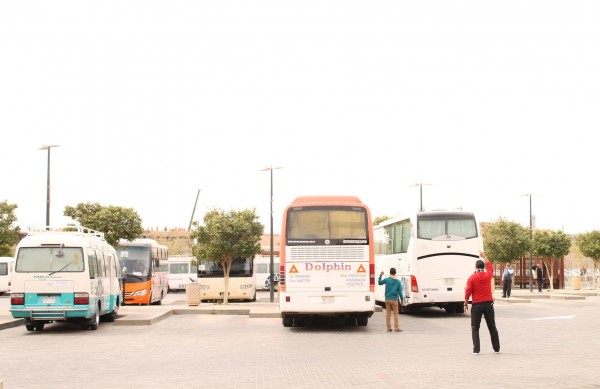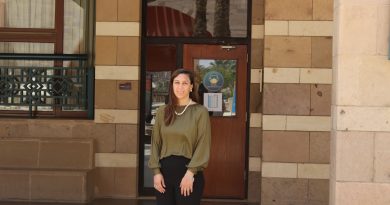Anderson: Freedom of Speech is a Principal Right at AUC
![Anderson became president in 2011, after serving as provost [Courtesy: Office of the President]](http://www.auccaravan.com/wp-content/uploads/2015/09/Photo-4-e1442693633182.jpg)
In June, AUC President Lisa Anderson announced that she would be stepping down at the end of the fall 2015 semester.
Anderson, who a specialist in Middle Eastern and North African politics, was appointed president in January 2011 and held her position for five consecutive years.
The Caravan staff sat down with Anderson to learn more about the challenges of leading the university through a number of crises.
Which would you say has been your most challenging year?
Each of the years had its own challenges, most probably; honestly the first year because it was a surprise, everything was a surprise. I became president on the first of January and of course by the 25th of January the entire country was changing before our very eyes, nobody could have anticipated that …
The senior [staff] had never convened in an emergency management group meeting before, there hadn’t been any emergencies to manage except for some H1N1 [Avian flu] problems.
So in those years, do you think your perspective of the AUC community has changed with how you saw the community handle those emergencies?
I continue to be really impressed by this institution and by the people here… AUC tends to be portrayed both in Egypt and in the United States and in the rest of the world as a little bit of an island on to itself and its not nearly as removed from the daily life of this country as that might suggest.
I ended up having more of a sense of the extent to which this is a community that is embedded in a larger community of Egypt, but also an enormous respect for the way people carry that— that being at AUC whether you’re an employee or you’re a student, whether you’re an alumni whatever it is, that you understand yourself as having a sense of responsibility that is different from the ordinary person in Egypt, so it’s an interesting balance.
What do you consider your biggest achievement as president?
I used to say this in the first few years after [the January 25th revolution] that my proudest achievement was keeping the university open and I would always say that in the US and people would laugh because what kind of university president brags about keeping the university open? But I was proud of that and I did think that under those circumstances, when many other institutions in this country were floundering and many universities didn’t finish semesters and there was lots and lots of complexities in that, the fact that we never jeopardized our accreditation, that we had all the credit hours per semester that we needed to was not nearly as simple as it seemed from afar. What is also a matter of pride that during all that time, we actually improved a lot of the processes at the university like fundraising – better than any year since we moved to campus— or maintaining robust admissions at work.
What are some of the things you regret in your years as President?
The fall of admission of international students … The fact that we cannot recruit international students right now is a problem for ranking and problem for finances because international students pay premium and most importantly they’re good for the culture of the campus. It has been an enormous disappointment, it has nothing to do with AUC, there’s nothing we can do about it. The rest of the world thought that Egypt was too dangerous of a place to come, there were travel warnings and advisories, most of them have been lifted by now, but there is still a legacy of that. It’s time that we vitalize the recruitment of international students from the world.
From this point in time, do you think that any situation over the past few years could have been managed better?
I think we could have managed the fluctuations in the budget a bit better; we were not as well prepared for the volatility of the economy, the budget and to some extent the politics of the campus.
I believe very strongly in freedom of expression on campus, and there are times when I wish I didn’t because life would be easier, but I really do and there is a cost to that.
Because, you know, people when they express their opinions they will say things that one, you can’t do anything about or two, are wrong or three, that maybe hurtful but that’s what expression is.
I don’t think at the end of the day that a university can operate without that kind of expression because I always say the principal right at a university is the right to be wrong because that means that you can learn. If you’re never wrong you never learn anything so it’s very important that that right be protected.
What are your thoughts on last year’s referendum?
It is part of the right to be wrong, I think they were wrong but I think they had the right to be wrong. I think there were respects in which the referendum was premature and poorly organized and therefore did not have the kind of impact that a statement like that could have.
The debates about the budget and the endowment and so forth were uninformed and it would have been more effective if people had early on tried to do the research that they subsequently ended up doing and understood better how the budget and the endowment works – in the meantime they confused and frightened a lot of people, so I think it wasn’t particularly effective in accomplishing very much of what it was intended to accomplish.
Why is AUC ranked lower than several Egyptian public universities?
This is very frustrating and we’re constantly talking about what to do about this but the problem is you can play games with how you report things so that you’re actually being disingenuous. The other thing that’s been frustrating is the rankings are all about research because it easier to do quantitative comparative assessments of education – so you can count how many of your faculty publish how many papers a year … Yet it says nothing about education, so how is it that you can develop measures of the quality of education that are cross-national?
Why are you leaving at the end of 2015?
I could have stayed forever, I love this place, I really think it’s a spectacular institution and I feel really blessed to have been able to be here but I do think there comes a point when you pretty much have accomplished what you can accomplish … you have to be able to say I’m walking away.
What’s next for you?
Probably sleeping –laughs– and as you know I’m a political scientist and I have a lot of things I may be writing, I may be resuming that kind of work that I haven’t done in a long time. Probably not in the spring, I want to take time to reflect on what I’ve been doing and then we’ll see.




